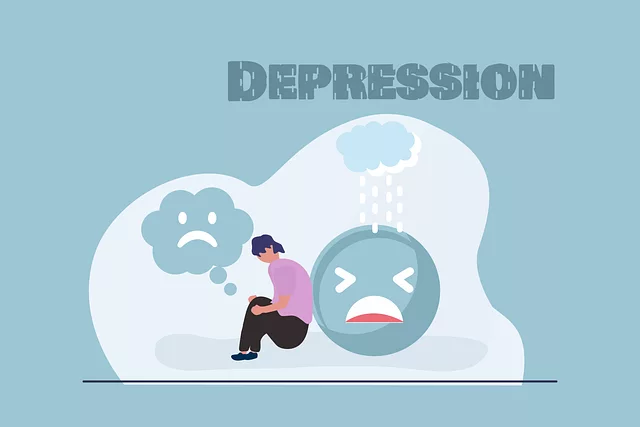Kaiser Permanente's behavioral health providers in Golden lead impactful public awareness campaigns, combining storytelling and science to promote emotional well-being. Through creative communication, they reach diverse audiences with workshops on self-care and stress management, empowering individuals to manage their emotional health. Their dedication to professional development and relatable content sets them apart, fostering a supportive community that improves behavioral health outcomes while also prioritizing provider well-being. Success is measured through robust programs and evaluations, ensuring both community awareness and the health of Kaiser Permanente's Golden behavioral health providers.
Public awareness campaigns play a pivotal role in promoting behavioral health, shaping attitudes, and driving positive change. This article delves into the intricacies of these initiatives, highlighting successful strategies employed by organizations like Kaiser Permanente. We explore how engaging behavioral health providers can amplify messages, emphasizing effective content creation techniques. Additionally, we discuss measurement methods to assess campaign success, using Kaiser Permanente’s approach as a golden standard for evaluating impact.
- Understanding Public Awareness Campaigns: Their Role in Behavioral Health Promotion
- Kaiser Permanente's Approach to Engaging Behavioral Health Providers
- Effective Strategies for Creating Impactful Campaign Content
- Measuring Success: Evaluating the Effectiveness of Public Awareness Campaigns
Understanding Public Awareness Campaigns: Their Role in Behavioral Health Promotion

Public awareness campaigns play a pivotal role in promoting behavioral health and fostering positive changes in communities. These initiatives aim to educate and engage individuals, encouraging them to take charge of their well-being. By shedding light on various aspects of mental and emotional health, campaigns inspire people to adopt self-care practices like developing consistent self-care routines for better mental health and attending stress management workshops.
Kaiser Permanente behavioral health providers emphasize the importance of these campaigns in creating a supportive environment where individuals feel empowered to manage their emotional regulation. Through creative communication strategies, they reach out to diverse audiences, addressing common challenges related to stress and emotional well-being. This proactive approach not only increases public understanding but also facilitates access to resources, ultimately contributing to improved behavioral health outcomes within communities.
Kaiser Permanente's Approach to Engaging Behavioral Health Providers

Kaiser Permanente takes a unique approach when engaging its behavioral health providers, which sets them apart in the healthcare industry. The organization recognizes that fostering strong relationships with these professionals is key to delivering exceptional care. By emphasizing collaboration and mutual respect, Kaiser Permanente creates an environment where behavioral health providers feel valued and empowered. This strategy ensures that they remain dedicated to their work, which involves guiding individuals through complex emotional healing processes and supporting them in developing inner strength.
The engagement tactics focus on open communication, continuous learning, and the integration of innovative practices. Through workshops and training sessions, Kaiser Permanente encourages its behavioral health providers to enhance their skills in areas such as self-awareness exercises, enabling them to better assist patients on their journeys towards mental wellness. This commitment to professional development not only benefits the providers but also guarantees that clients receive high-quality, compassionate care tailored to their unique needs.
Effective Strategies for Creating Impactful Campaign Content

Creating impactful content for public awareness campaigns is an art and a science. To effectively engage audiences, especially in promoting sensitive topics like behavioral health, Kaiser Permanente’s network of behavioral health providers emphasizes storytelling and relatable narratives. Crafting messages that resonate with people from diverse backgrounds involves understanding their pain points, hopes, and aspirations. Incorporating real-life experiences and success stories from individuals who have benefited from mental health education programs design can be powerful tools. This strategy not only humanizes the issue but also inspires hope and encourages others to seek support.
The Mind Over Matter principles, when woven into campaign content, can transform perceptions about behavioral health. Emphasizing emotional healing processes and resilience, these campaigns can help break down stigmas associated with mental health issues. By presenting science-backed information in accessible formats, such as videos, infographics, or social media posts, the Golden rule of engaging content becomes evident. Ultimately, a successful campaign aims to educate, inspire, and motivate people to take action for their well-being and that of others.
Measuring Success: Evaluating the Effectiveness of Public Awareness Campaigns

Measuring success is a vital aspect of evaluating the effectiveness of public awareness campaigns, especially when aiming to improve behavioral health outcomes. Organizations like Kaiser Permanente, with their extensive reach and dedicated behavioral health providers, understand the importance of measurable impact. By setting clear goals and implementing a robust Community Outreach Program, they can assess the campaign’s success in raising community awareness and promoting positive behavioral changes.
This process involves various strategies, from tracking participation rates in educational workshops to analyzing shifts in public perception through surveys and focus groups. For instance, evaluating the impact of burnout prevention strategies for healthcare providers within such campaigns is crucial. Similarly, risk assessments for mental health professionals can be integrated into these evaluations, ensuring not only public awareness but also the well-being of those delivering the services.
Public awareness campaigns play a pivotal role in promoting behavioral health, and as demonstrated by Kaiser Permanente’s successful engagement with behavioral health providers in Golden, strategic content creation and effective measurement are key to achieving impactful results. By understanding the audience, employing innovative strategies, and evaluating outcomes, these campaigns can drive positive behavioral changes within communities, fostering a healthier society.






